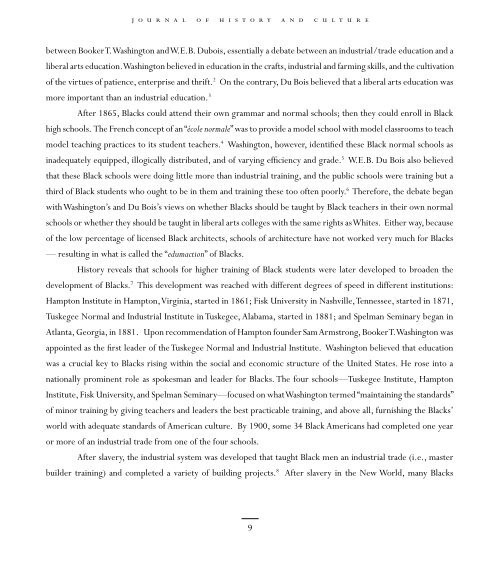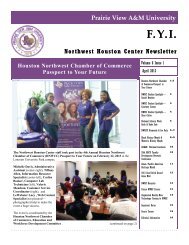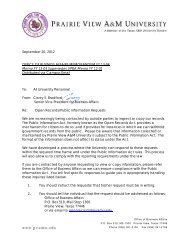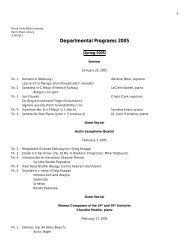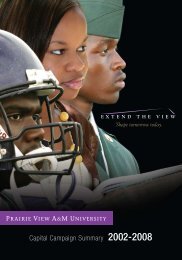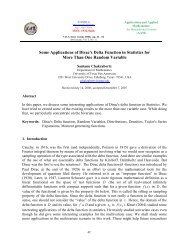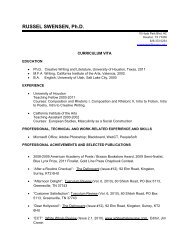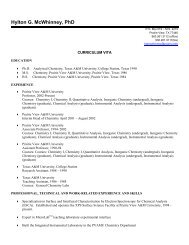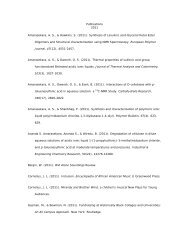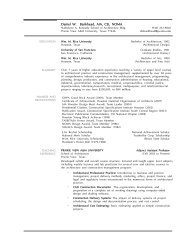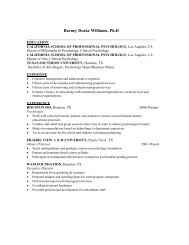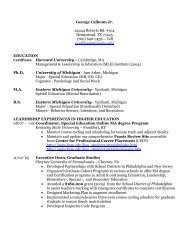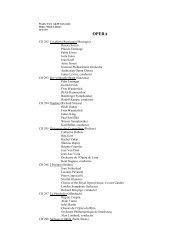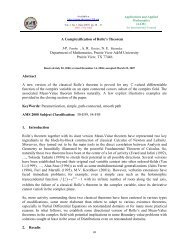Journal of History and Culture Journal of History and Culture
Journal of History and Culture Journal of History and Culture
Journal of History and Culture Journal of History and Culture
You also want an ePaper? Increase the reach of your titles
YUMPU automatically turns print PDFs into web optimized ePapers that Google loves.
j o u r n a l o f h i s t o r y a n d c u l t u r e<br />
between Booker T. Washington <strong>and</strong> W.E.B. Dubois, essentially a debate between an industrial/trade education <strong>and</strong> a<br />
liberal arts education. Washington believed in education in the crafts, industrial <strong>and</strong> farming skills, <strong>and</strong> the cultivation<br />
<strong>of</strong> the virtues <strong>of</strong> patience, enterprise <strong>and</strong> thrift. 2 On the contrary, Du Bois believed that a liberal arts education was<br />
more important than an industrial education. 3<br />
After 1865, Blacks could attend their own grammar <strong>and</strong> normal schools; then they could enroll in Black<br />
high schools. The French concept <strong>of</strong> an “école normale” was to provide a model school with model classrooms to teach<br />
model teaching practices to its student teachers. 4 Washington, however, identified these Black normal schools as<br />
inadequately equipped, illogically distributed, <strong>and</strong> <strong>of</strong> varying efficiency <strong>and</strong> grade. 5 W.E.B. Du Bois also believed<br />
that these Black schools were doing little more than industrial training, <strong>and</strong> the public schools were training but a<br />
third <strong>of</strong> Black students who ought to be in them <strong>and</strong> training these too <strong>of</strong>ten poorly. 6 Therefore, the debate began<br />
with Washington’s <strong>and</strong> Du Bois’s views on whether Blacks should be taught by Black teachers in their own normal<br />
schools or whether they should be taught in liberal arts colleges with the same rights as Whites. Either way, because<br />
<strong>of</strong> the low percentage <strong>of</strong> licensed Black architects, schools <strong>of</strong> architecture have not worked very much for Blacks<br />
— resulting in what is called the “edumaction” <strong>of</strong> Blacks.<br />
<strong>History</strong> reveals that schools for higher training <strong>of</strong> Black students were later developed to broaden the<br />
development <strong>of</strong> Blacks. 7 This development was reached with different degrees <strong>of</strong> speed in different institutions:<br />
Hampton Institute in Hampton, Virginia, started in 1861; Fisk University in Nashville, Tennessee, started in 1871,<br />
Tuskegee Normal <strong>and</strong> Industrial Institute in Tuskegee, Alabama, started in 1881; <strong>and</strong> Spelman Seminary began in<br />
Atlanta, Georgia, in 1881. Upon recommendation <strong>of</strong> Hampton founder Sam Armstrong, Booker T. Washington was<br />
appointed as the first leader <strong>of</strong> the Tuskegee Normal <strong>and</strong> Industrial Institute. Washington believed that education<br />
was a crucial key to Blacks rising within the social <strong>and</strong> economic structure <strong>of</strong> the United States. He rose into a<br />
nationally prominent role as spokesman <strong>and</strong> leader for Blacks. The four schools—Tuskegee Institute, Hampton<br />
Institute, Fisk University, <strong>and</strong> Spelman Seminary—focused on what Washington termed “maintaining the st<strong>and</strong>ards”<br />
<strong>of</strong> minor training by giving teachers <strong>and</strong> leaders the best practicable training, <strong>and</strong> above all, furnishing the Blacks’<br />
world with adequate st<strong>and</strong>ards <strong>of</strong> American culture. By 1900, some 34 Black Americans had completed one year<br />
or more <strong>of</strong> an industrial trade from one <strong>of</strong> the four schools.<br />
After slavery, the industrial system was developed that taught Black men an industrial trade (i.e., master<br />
builder training) <strong>and</strong> completed a variety <strong>of</strong> building projects. 8 After slavery in the New World, many Blacks<br />
9


